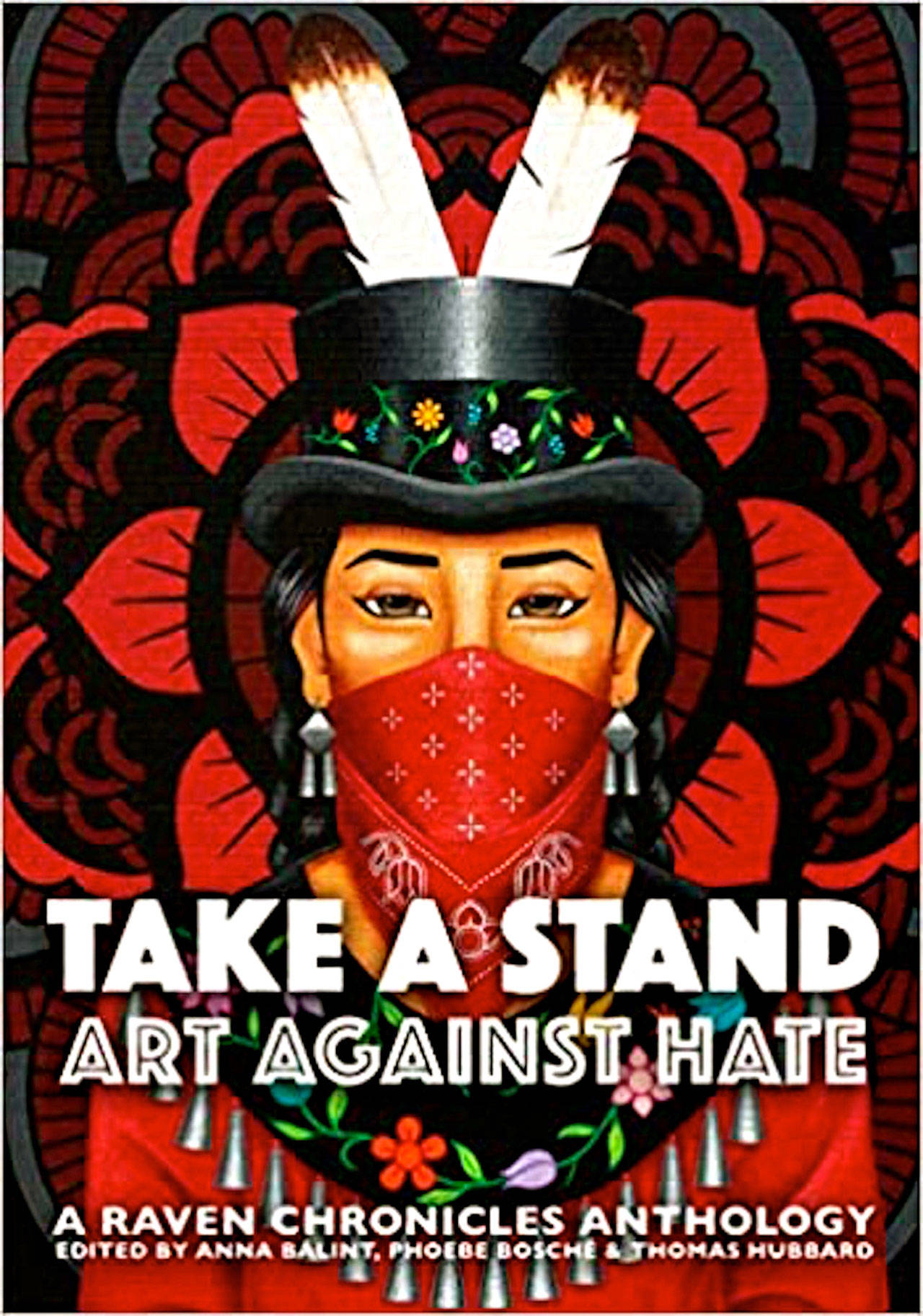WHERE’S A REFUGE, I’ve wondered these many months. Bad news about this group hating that group — it felt relentless.
In times like this I turn to art, music, story. They are solace for mind and heart.
So it was with great hope I asked the poet Holly Hughes of Chimacum, an acquaintance, if I could borrow one of her freshly published copies of “Take a Stand: Art Against Hate,” an anthology from Raven Chronicles Press in Seattle.
This Thursday evening, seven writers will share a 90-minute reading from the book. They, along with Port Townsend’s Northwind Arts Center, invite the public to the 7:30 p.m. event, which will take place online. The link is found via Northwindarts.org; click on Events at the top of the web page. Admission is free.
The reading has a powerhouse poetic lineup: Tess Gallagher and Alice Derry of Port Angeles, Port Townsend’s Sharon M. Carter and Gary Copeland Lilley, Patrick Dixon of Olympia and Lawrence Matsuda of Seattle will participate, with Hughes moderating.
So I drove through the woods to Hughes’ place, found the book on her porch where she’d left it, and eagerly freed it from its mailer.
Opening “Take a Stand” is like holding open flames. The prose and poetry leap off the pages, the writers and artists walking through the fire. They witness the worst of what humans inflict on one another in unflinching, unblinking accounts.
Claudia Castro Luna, the Washington state poet laureate born in El Salvador, writes about her fellow Central Americans seeking asylum in the United States. She’s heard them described as “violent,” “vicious,” “invaders” — and offers an alternative, an insight born of her own journey. Luna’s piece is titled “I see myself, and courage and hope, in the faces of the caravan.”
So no, there’s no sweet comfort between this book’s covers. Thumbing through its sections, “Legacies,” “We Are Here,” “Why?” “Evidence” and “Resistance,” is like travel — through a war zone. Each contributor is magnificently defiant.
“Take a Stand” encompasses 117 writers and 53 visual artists: Photos, drawings and comics mix with the long poems and short essays.
The stunning cover art comes from a mural titled “Ganawenjiige Onigam,” which means “Caring for Duluth” in the Ojibwe language; the subtitle is “A New Symbol of Resilience in Duluth, Minnesota.” Finished in 2017 with help from more than 50 community members, this is the city’s first piece of public art for and by indigenous people, according to the book’s foreword. Photos of the building bearing the glorious image is found by searching for AICHO.org/water-protector-mural.
When I at last rounded the bend to the anthology’s last section, I found not only more heat, but also rays of light.
A black and white comic by Noel Franklin, titled “Rest as Resistance,” reminds us we have many ways to express ourselvess.
“You can take it to the web/ You can take it to the stage/ You can take it to the streets / You can take it to the page,” she writes. “But if you can take no more/ Then you can take a break. /Use rest as resistance — it keeps us strong and safe.”
Further back in the book comes one more bright beam; a sentence that made me glad I read through to this point. It comes in the biography for Brynn McCall, author of a harrowing poem titled “those boys.”
McCall is a high school student from Denver, Colo., we learn. “Her work has been featured in Syntax & Salt Magazine, and she is somehow incredibly hopeful for the future.”
_________
Diane Urbani de la Paz, a freelance journalist and former PDN features editor, lives in Port Townsend.
Her column appears in the PDN the first and third Wednesday every month. Her next column will be Oct. 21.
Reach her at Creodepaz@yahoo.com.

